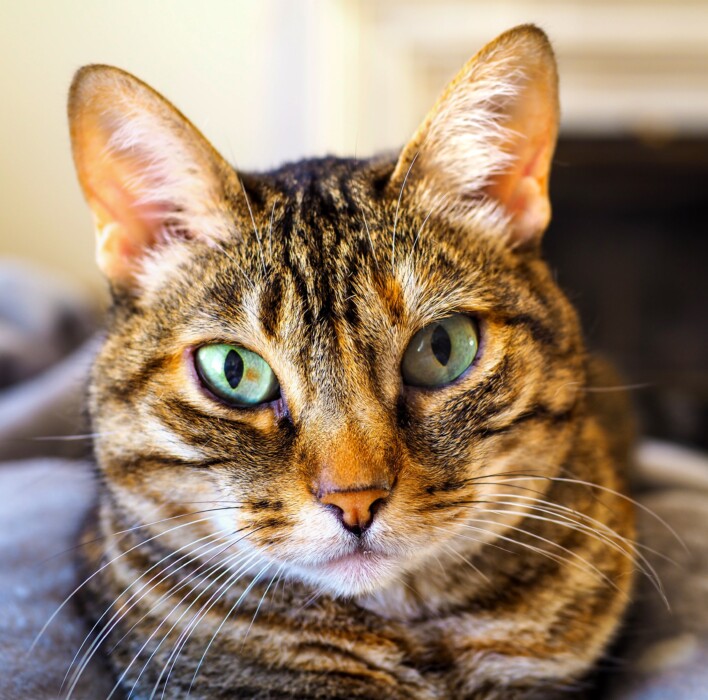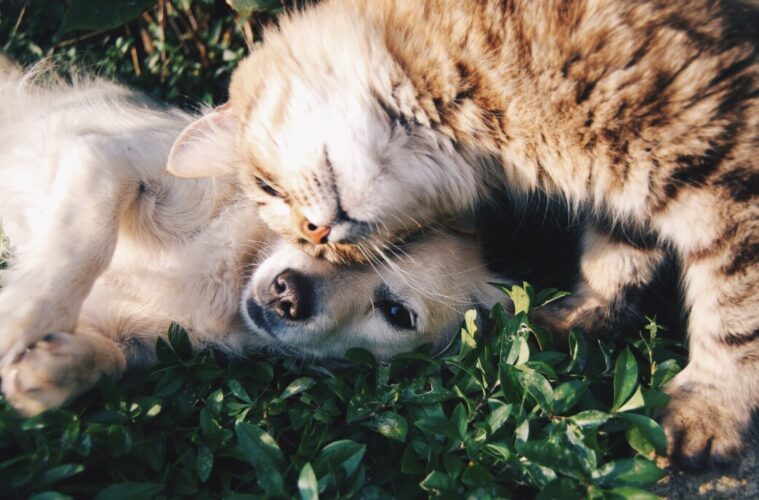Joanna Everett MRCVS from Bath Vets passes on some expert advice on how to keep your family pet healthy
With human vaccinations taking up so many headlines across the country, now seems an appropriate time to talk about the importance of vaccinations to our pet’s health too. Just as with humans, our pet’s immune system helps protect against disease causing organisms (pathogens) that cause infection. However, some pathogens, usually those the body doesn’t recognise, can overwhelm the immune system causing serious illness.
Vaccination is a way to ‘teach’ the immune system how to recognise and fight specific viral and bacterial diseases in preparation for potential environmental exposure. The first animal vaccine invented was for chicken cholera in 1879 and in the 140+ years since then, vaccinations have allowed us to control life-threatening animal diseases, leading to increased healthy life-spans for our furry friends.

Puppies, kittens and rabbit kits are normally safe from most infections for the first few weeks of their lives thanks to the immunity passed onto them through their mother’s milk. However, as this maternally-derived immunity wanes, they become vulnerable to life-threatening infections. Vaccinating your new addition is one of the most important things you should do in your first few weeks as a responsible pet owner, and keeping these vaccinations up to date is a critical part of your proper preventive healthcare programme.
In the UK, we’ve been really good at vaccinating our pets and as a result of this, many of the diseases that we can protect against, for example, distemper, have become much less common. However, research by the PDSA shows that vaccination rates are dropping, especially in young animals. Their 2017 results show that just 75% of dogs (seven million) and 65% of cats (6.7 million) received a primary vaccination course. These are the lowest levels ever recorded by the PDSA Animal Wellbeing Report and compares with 82% of dogs and 72% of cats in 2011. Furthermore, only 66% of owners surveyed in 2017 had protected their pet with annual booster vaccinations, creating the risk that many potentially fatal diseases may make a comeback .
The ‘core’ vaccinations for UK dogs are canine distemper virus, canine adenovirus/infectious canine hepatitis, canine parvovirus and leptospirosis. Core vaccinations for cats are flu and enteritis if indoor only, plus feline leukaemia if your cat has any outdoor activity. In rabbits, myxomatosis and the two forms of rabbit viral haemorrhagic disease become the primary focus.
Non-core vaccinations include kennel cough and rabies, which are given depending on risk factors and travel needs. Some of these vaccinations last three years and so your pet’s annual booster will not contain the same components at every visit but will be targeted only against those diseases necessary.

Vaccinations are developed and produced under very strict safety rules and can’t be sold unless they’ve been licensed and proved to be safe and effective in use. Adverse effects from vaccines are very rare, especially in view of the millions of doses that are administered every year. The most common side-effects are mild and include lethargy, inappetence or tenderness at the injection site, usually lasting no longer than a few days. ‘Homeopathic vaccines’ have no scientific basis and cannot provoke the specific immune response that is needed to provide protection.
Additional reasons to ensure your pets vaccinations remain up to date include their requirement by reputable boarding kennels/catteries if your pet needs care when you go away on what is now a long overdue and much needed holiday! Rabies vaccination is a key part of the pet travel scheme if your dog or cat travels abroad with you, while many insurance policies will also require you to keep your pet’s preventative treatments up-to-date, so your policy is valid to make a claim.
Sadly, a lot of the diseases that your pet can catch if they aren’t vaccinated are, in most cases, fatal. Even if your pet catches one and is able to recover, they will often be left with long-term problems which can put them through on-going pain and distress, and leave you with some costly vet bills. For example, the average hospital stay for a puppy being treated for parvo is five to seven days. Costs for round the clock barrier nursing in isolation, veterinary care, medicines and fluids tot-up quickly, and bills can easily run into the thousands of pounds. Despite this intensive care, young pups are often not strong enough to survive the toll the virus takes on their bodies and many will die.
So, with vaccination at the top of all our minds, now is the time to dig out your pets vaccination records (or to give your vet a call) and ask yourself the question, is my pet fully protected against everything he or she could be?
For more details, contact Bath Vets at www.bathvetgroup.co.uk


